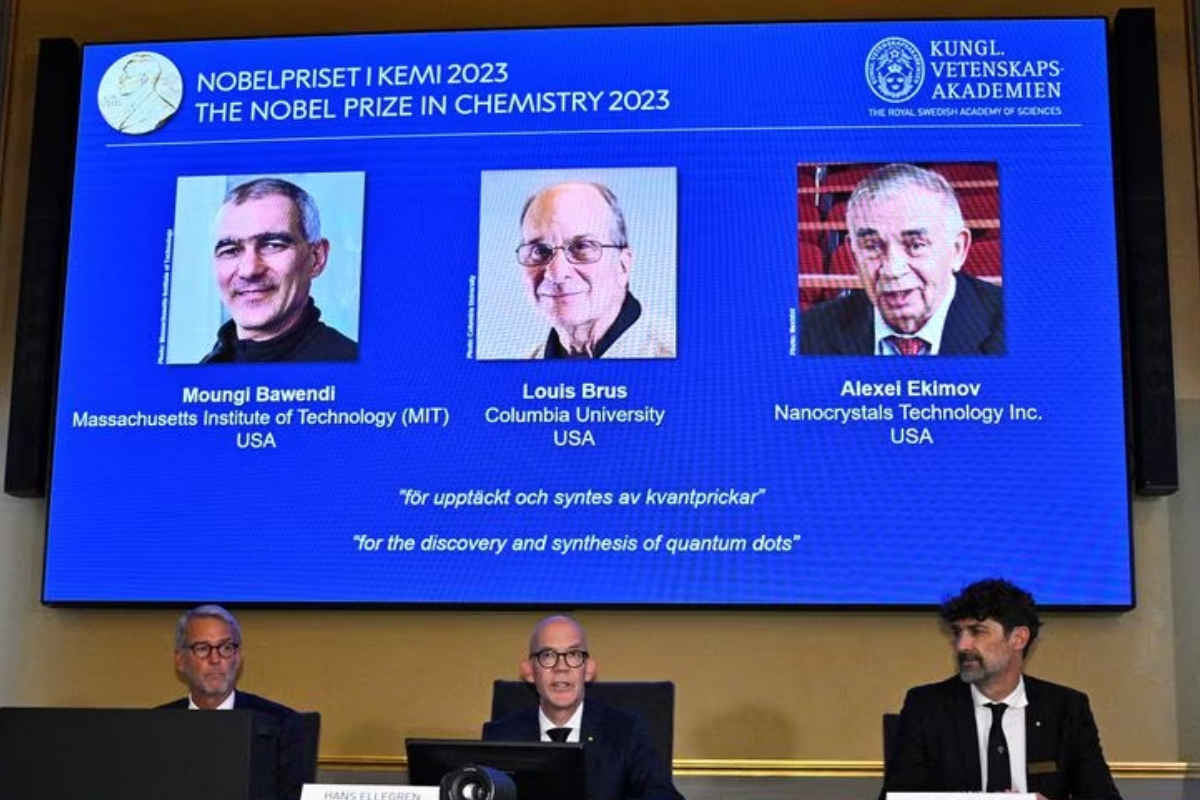STOCKHOLM: Scientists Moungi Bawendi, Louis Brus and Alexei Ekimov won the 2023 Nobel Prize in Chemistry for “the discovery and synthesis of quantum dots,” which illuminate computer monitors and television screens and are used by doctors to map tumours.
“The Nobel Laureates … have succeeded in producing particles so small that their properties are determined by quantum phenomena. The particles, which are called quantum dots, are now of great importance in nanotechnology,” the Nobel Committee for Chemistry said in a statement.
“Researchers believe that in the future they could contribute to flexible electronics, tiny sensors, thinner solar cells and encrypted quantum communication.”
Nanoparticles and quantum dots are used in LED-lights and can also be used to guide surgeons while removing cancer tissue. The prize is awarded by the Royal Swedish Academy of Sciences and is worth 11 million Swedish crowns ($997,959).
Asked during a press conference how he felt to hear news of his award, Bawendi said by phone from the United States: “very surprised, sleepy, shocked, unexpected and very honoured.”
“I didn’t think that I would get it,” he added. Among the “fascinating and unusual properties” of quantum dots is that they create different colour lights, depending just on the particle size, while keeping the atomic structure unchanged, said Johan Aqvist, Chair of the Nobel Committee for Chemistry.
Bawendi is a professor at the Massachusetts Institute of Technology (MIT), Brus is professor emeritus at Columbia University and Ekimov works for Nanocrystals Technology Inc.
Brus was hired by AT&T Bell Labs in 1972 where he spent 23 years, devoting much of the time to studying nanocrystals.
Bawendi was born in Paris and grew up in France, Tunisia, and the US. Bawendi did his postdoctoral research under Brus then joined MIT in 1990 and became professor in 1996.
Ekimov was born in the Soviet Union worked for the Vavilov State Optical Institute before moving to the United States. In 1999, Ekimov was named chief scientist at Nanocrystals Technology. The chemistry Nobel follows those for medicine and physics announced earlier this week.


